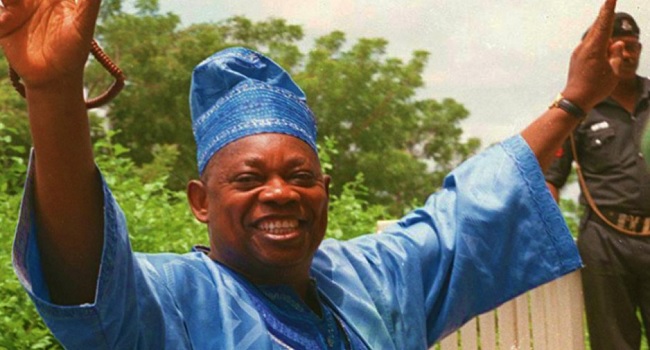MKO Abiola, Babangida… meet June 12 key actors and their roles

MKO Abiola and other June 12 key actors.
June 12 remains a defining moment in Nigeria’s democratic journey—a day that symbolizes the people’s will and the resilience of pro-democracy advocates. It marks the annulled 1993 presidential election, widely regarded as the freest and fairest in Nigeria’s history, and the beginning of a political awakening that would reshape the country’s democratic path. At the heart of this movement were courageous individuals whose actions, sacrifices, and voices ignited a nationwide quest for justice and democracy.
At the center of the June 12 narrative is Chief Moshood Kashimawo Olawale Abiola (MKO Abiola), the presumed winner of the 1993 election under the banner of the Social Democratic Party (SDP). A wealthy businessman, philanthropist, and grassroots politician, Abiola represented hope and unity across Nigeria’s ethnic and religious divides. His campaign slogan—“Hope ’93”—resonated deeply with Nigerians disillusioned by military rule. After the annulment of the election by then-military ruler General Ibrahim Babangida, Abiola became a symbol of democratic resistance, famously declaring himself president in 1994. He was later arrested and detained by General Sani Abacha, where he died in custody in 1998 under mysterious circumstances.
General Ibrahim Babangida, Nigeria’s then-military president, played a controversial role by annulling the June 12 election despite widespread acclaim for its transparency. His decision plunged Nigeria into political chaos, delegitimized his administration, and sparked mass protests, strikes, and global condemnation. Babangida’s exit from power shortly after the annulment marked a turning point, but not without lasting damage to Nigeria’s political trust.
General Sani Abacha, who seized power in a subsequent coup, intensified the repression of pro-democracy advocates. His regime was notorious for human rights abuses, including the jailing of Abiola and the execution of several activists. However, his unexpected death in 1998 created an opportunity for political transition.
Another pivotal figure was Chief Anthony Enahoro, a nationalist and elder statesman who spearheaded the National Democratic Coalition (NADECO). Alongside other prominent voices like Pa Abraham Adesanya, Gani Fawehinmi, Wole Soyinka, and Beko Ransome-Kuti, the coalition kept the June 12 cause alive both at home and in exile. These figures tirelessly advocated for the restoration of Abiola’s mandate and an end to military dictatorship. Their activism laid the groundwork for Nigeria’s return to civil rule in 1999.
The press also played an instrumental role. Media houses such as The Guardian, Punch, Tell Magazine, and The News defied censorship and intimidation to expose the truth about the annulled election and the government’s crackdown on dissent. Journalists were harassed, detained, and forced into hiding, but the media’s unyielding commitment to the truth helped sustain public consciousness about June 12.
In 2018, June 12 was officially recognized as Nigeria’s Democracy Day by President Muhammadu Buhari, replacing May 29 as a tribute to the struggle and sacrifice of MKO Abiola and countless others. The formal recognition not only acknowledged Abiola’s legacy but also cemented the day as a reminder of the power of the people’s mandate.
June 12 is not just a date; it is a symbol of resistance, sacrifice, and the undying pursuit of democratic ideals. The actors of that era—both celebrated and unsung—embodied the spirit of a nation refusing to be silenced. Their courage continues to inspire new generations of Nigerians committed to justice, equity, and democratic governance.

